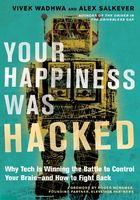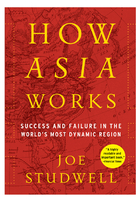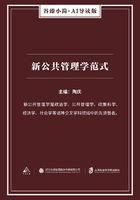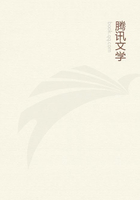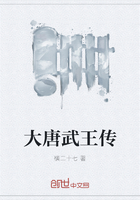Introduction
Stress may be the greatest epidemic of our time.
I am no stranger to the troubling consequences of stress. My father, an entrepreneur who sadly lost his business, died before my eyes from a heart attack, panicked and distressed by financial troubles.
When I met my assistant, her health was completely destroyed by stress. As an employee of a large corporation in New York City, day in and day out she pushed herself to complete amounts of work that were clearly not suitable for just one employee. With about ten minutes to eat lunch every day, she was surrounded by coworkers drowning in stress of their own. She had no sense of peace in her daily life. Her mind was running all the time; she would leave her office, but the anxiety, worry, and stress from her job consumed her well-being. She, and everyone around her, truly believed high levels of stress were just part of the job— the norm.
One day while crossing the street after work, she collapsed in the middle of oncoming traffic. Concerned, she went to the doctor. She completed blood work, an MRI and a CAT scan, a cardiac CT scan—a full physical examination. The doctors could not find one thing wrong with her health. The problem was debilitating stress.
Unfortunately, her case is becoming common, especially in big cities. Adrenal and thyroid complications, chronic migraines, insomnia, depression, and chronic fatigue are plaguing people of all ages, and often the true culprit goes unrecognized. That is because stress is a silent killer. It does not "shout" or send many warning signs that your health is being put at risk. Rather it acts swiftly and profoundly, often through heart attacks, strokes, brain aneurysms, and cancer.
The Japanese have recognized that many deaths are the direct result of stress. The phenomenon of sudden death from severe working conditions and stress is so prevalent in their society that they have coined a term for it: karoshi. It translates literally to "overwork death."
We are educated to believe that a certain amount of stress benefits our work performance. This idea is entirely deceiving. There is no form of stress that benefits you. This idea stems from the traditional thinking that we perform better when we activate our "fight or flight" response system. In today's world, we rely on this system regularly to boost our energy and concentration. The problem with this is that it was an evolutionary response to life or death circumstances, a tool for survival. In earlier centuries, it was seldom used. We now rely on this physiological reaction on a regular basis—to finish an Excel chart or a presentation, to make a phone call, or to deliver bad news. We must recognize that relying on fight or flight has consequences and puts strain on the body.
Every day, I work to guide working people to lower their levels of stress, to manage employees who have "burned out," to help people with severe depression find light and appreciation of their lives once more. Stress gets worse day after day and moves faster than I had ever imagined. Unlike tuberculosis, polio, and other epidemics we've faced, there will never be a simple cure for stress.
The Speed of the World
With all the developments in modern technology, time seems to be running faster than ever. Why has the hurricane of stress overtaken our lives, and why are we being trained to live with this infernal speed? In our economic system, profit maximization is the goal. Employers ask their employees to work faster, harder, and more efficiently, often with little added incentive or reward.
We have lost our sense of balance, and working has become a cultural obsession. When asked how we are doing, we often reply, "I'm busy," as if "busy" is a synonym for "well." Our society has given in to the thinking that we should feel guilty if we are not working ourselves to our personal limit. We live in a mental prison. If we lose anytime for productivity—if we don't finish our to-do list or forget to run an errand—we don't feel well. And if we are not engulfed in the obsession with time, we worry that we are not normal, that we are sick. All our energy is spent thinking that we are saving time and energy for the future. We want to work faster, eat faster, move faster, think faster, and know faster.
But take a moment to examine your life: Have you ever stopped running? Perhaps when you went on a vacation you felt less worried, but this is a temporary effect. The time we think we are saving we often just fill with other "time-saving" activities. The brain and body are never given time to rest—and sleep and rest are two very different things.
Albert Einstein proved that time does not exist. Time depends on our perception of time. If we are present in our lives, we create a dilatation of time. Mysteriously, we feel we have more time. It is not a sensation, but a reality. Time depends on what we do with our time. It is a micro and macro reality on the planet, created and perceived by each individual.
It is only when we face the threat of death, a burnout, or a severe sickness that we realize how life is so short and so precious. It is only then that we choose to see that the wheel of time can be slowed down. We see that we feel better when we take time to appreciate the little things. And it is a very noticeable and measurable change. I have helped many people in hospitals during their final days. Many of the final words spoken by these clients are along the same lines: "It was so fast, I did not see my life moving before me." Bewildered by their regrets, they pass the same way they lived—without consciousness. This blind way of living is considered deep suffering in the teachings of the process of reincarnation.
We can see our future by looking at our present.
Instead of being "busy," we can say we have busy schedules, but we are feeling very well! Every day I teach how it is possible to work with less effort and less stress. I was fascinated to see how my rinpoche (teacher in Buddhist tradition) had a lot of work, an incredibly demanding schedule, but he was never stressed. You could see how he was free from the obsession of time. He was happy to teach and to help many people, but he never considered stress necessary. This is now one of the foundations of my teachings.
The Opposite of Our Goal
What is our goal? To be happier at work, and to be more productive with less effort. What do we need for this to happen? To have a clear mind, in order to memorize and synthesize information more easily; to connect to our intuition; and to make better decisions. For this to happen we need to reduce our stress levels, which in return will clear our minds, give us confidence, and make us feel well once again.
Our goals are clear, yet we work in a manner that is counterproductive to reaching our goal.
Every minute that we feel stressed we send negative neurochemical messages to every cell of our body, inhibiting the cells from functioning at their true potential. We destroy our neurons, our intellectual capacities, and our health. As my friends Dr. Natalie Trent at Harvard University and Dr. Mario Beauregard at the University of Arizona explain, we underestimate how much poison one minute of stress sends to our organs, muscles, and cells.
When the neurochemical message is sent to the cells, they work harder and faster, creating long-lasting fatigue. We feel a chronic dissatisfaction as we push our mental and psychical capacities, hoping for an outcome that seldom arrives. This cycle leaves us sad, and when repeated it leads us to depression and even suicidal tendencies.
Pushed by the speed of the world, we usually don't pay attention to stress. We know we dislike the way it feels, but we continue to live with it because it is all we know. We continue to allow guilt about unfinished tasks and the distorted view of time to guide our decision to continue in this cycle.
Perhaps the most troubling misunderstanding about stress is that we fail to recognize it as a killer. Stress is the source of the major causes of death, including heart attacks, cancer, brain aneurysms, and many other types of trauma. Often we say a person died from an illness, but we don't see that the cause of that illness is rooted in the mind and our decision to feel anxious and stressed.
We are taught to accept a totally false perception of our reality. We think that to be stressed is normal.
It's not.
We are at a critical time. What is the cost of doing business? Surely not human lives.
The Cliché Version of Meditation
I jokingly open my remarks at many conferences by saying, "I don't like meditation." The word meditation conjures a clichéd image developed by Western society. We immediately picture a quiet mindfulness practice with the body in lotus position, hands open, palms facing upward, and eyes closed. Deep breathing and even chanting are usually included in this myth as well. When I spent three years in a monastery, I never saw any monks practicing that type of meditation. Monks find it amusing when tourists visit the monastery expecting to see everyone practicing yoga and chanting! This is a Western fantasy perpetuated through media and film.
This cliché version of meditation is probably what you've tried—and I don't say it will not benefit you. I, too, have tried this method. But as you may have experienced, it is not at all adapted to emergency situations and cannot easily be practiced in daily life, especially at the workplace.
A friend of mine, a dedicated meditation teacher, once said to me, "People are so stressed because they don't take time to meditate." This is the most common justification for why students' meditation practice declines or stops altogether. I contemplated this issue for many years, looking for a solution for my students and for the much larger world of professionals plagued by stress.
Is it realistic to tell the millions of people who are overworked, exhausted, and broken by stress, "You must change your life. Find thirty minutes or an hour to sit quietly with no interruptions or commitments, clear all the thoughts in your mind, and be at peace"? This, too, seems like a fantasy. If you take care of your family, work long hours, go to school, and so forth, you are probably already pushing your body and your schedule to their limits.
And yet it has been proven that meditation is transformative for the mind, body, and spirit. From lowering anxiety and increasing memory to reducing blood pressure and boosting your immune system, we know meditation works! But day after day passes and we have yet to practice, and even more importantly, we have not made practicing routine in our lifestyles.
Why wouldn't we do something that benefits us? We drink water. We go to the gym. We eat healthy food and monitor our weight. We try to get ample rest. We keep the body clean and take medicine to prevent illness. We educate ourselves. We try to be kind.
So why haven't we added meditation to this list?
I usually start with a simple metaphor. If you know to shower every day to clean your body, why don't you do anything to clean your mind? After all, the mind is the motherboard for all that we do and all that we are.
The meditation practices we have learned, the cliché we all imagine, are simply not adapted for the life we live today. Many spiritual teachers, including monks and nuns, have the privilege of stable accommodations and don't have to worry about living expenses. They are fortunate enough to enjoy a protected life, away from the harsh realities many of us face. They don't live with a high level of daily stress, and as a result their teachings on stress are about a reality they do not live. Furthermore, they underestimate how times have changed and how teachings must be adjusted for modern life before they eventually become obsolete.
If you've found a stress-relief technique that works for you, great! If you are not sure your technique is working, there is a simple test to determine if you should continue. In your daily life, at home, at your workplace, are you less stressed when you practice your techniques? Can you say your thoughts are running less feverishly? Do you find that your emotions "yo-yo," happy one moment and devastated the next? Can you control your emotions, or do they control you? Is your mind clear? Are you happy? Deeply happy? If you've answered "yes," your practice works perfectly. But if you don't feel less stress at work and at home, your practice does not work.
The goal of mindfulness practice is not to become more religious, but to be happier and more present to your life. The goal of life is to be alive. Just alive. Deeply alive. Peace is our ultimate nature. We seek it desperately because we know it is how we are naturally designed to live. We seek the quiet of nature because we are made of the elements. Our aspiration for peace is deep and sincere; the cliché version of meditation is just the opposite.
The Roots of Stress
Of course, the roots of stress are money problems, family difficulties, career advancement, and so forth. However, it is our false perception of stress, our need to attach ourselves to stress, literally our addiction to stress, that creates our suffering.
When I teach in schools, I always ask children, "What does the word meditation mean?" While their initial answer is "sleep," usually the one that follows is the cliché of mediation, as I have just described it. They sit on the floor, hands open in the air, and giggles fill the room. Even children recognize that this form of meditation is a fantasy. Even as children we are taught that peace is merely a fantasy: You can find it on vacation, but not in your daily life.
One day a Buddhist monk who is a friend of mine came to New York for the first time. As a monk, he was interested in finding a place to try to spend time alone quietly. I offered to show him some of the local studios, and when we arrived, he said, "What Buddhism is this? American people have made a new form of Buddhism I have never even seen in a monastery! When did this Buddhism happen?" He laughed as he watched the class being taught, and he laughed even harder when we saw each student leave more frustrated and anxious than they had entered. When I told him how much each class cost, he nearly fell to the floor in hysterics. It was a startling moment of two worlds colliding, and I will never forget it.
We never see a person peacefully sitting in Times Square. We only see "peace" depicted as a two-week yoga retreat in a secluded mountain range advertised on a magazine cover in the check-out line at the grocery store.
We have forgotten that peace is everywhere.
And better yet, it's free!
Peace is our nature, and we know this deeply in our hearts. Have you ever had a great day? On those days, you radiate joy. All those around you feel this joy; it is simply contagious. This joy brings you peace. You feel well in mind, body, and spirit. Without realizing it, you are balancing your hormones, boosting your immune system, and keeping your body healthy. Apples are delicious, but a smile a day can also help keep the doctor away! You know this feeling. You've experienced this peace, and you seek out this peace because it is your true nature. It is how you were created. You were made to be happy. Unfortunately, we have grown far from our true nature, and I am hoping that in times of distress, this book can help bring you back.
We must relearn the difference between true inner peace and the "peace" we fantasize about. Inner peace, true peace, can be found anytime, anywhere.
The goal of Meditation for Daily Stress is to correct a false perception of our reality. Peace is like oxygen; it is everywhere and accessible to anyone at anytime.
If you follow the practices I have created you will discover that you can use breathing and visualizations to ground yourself anytime you feel unwell. The key to the practices in this book is that they seek to cure the roots of stress, not just the symptoms.
The more we practice meditation (or any mindfulness technique that takes us outside of our daily situation), the more deeply our brain is imprinted with the idea that peace is always with us. The more we give in to stress, the more our health declines. If we do not stop the cycle, surely we will burn out, broken by overworking our minds and bodies. We will become dependent on substances we don't need, and in time, we will find ourselves in an emergency situation.
Meditation is not a posture or breathing pattern; it is a change in the perception of daily life.
To help you see past the cliché version of meditation, I have bridged my teachings with the outstanding findings and studies of neuroscience. My dear friends, Dr. Mario Beauregard, PhD, and Dr. Natalie Trent, PhD, have assisted me in deeply understanding how we can change our thinking, brain chemistry, and more through meditation. Specifically, we have collaborated to find the best way to meditate for those suffering from high stress levels at work. In addition, we've also been able to focus on helping high-risk communities, including children, and those facing illness.
Meditation has typically been seen as a luxury, an indulgence. But there is no expense involved in meditating, and there is no expense to finding peace. Wealth can buy you a nice vacation, but any peace you find on holiday will be fleeting unless your perception of peace is deeply changed.
Whether I am teaching Google employees, military veterans, parolees at the Amity Foundation, or students at Harvard, there is one commonality among all my students: They are all looking to feel peace. They are overwhelmed by daily tasks and running thoughts. They cannot find a way to be mindful in their daily lives. They have tried the teachings of meditation, yoga, mindfulness-based stress reduction (MBSR), and other stress-relief techniques, but they have not been able to incorporate these tools into their schedule long-term.
Many of my students say the greatest challenge in practicing these techniques is finding the time. I think the problem is bigger than that. Most of the mindfulness exercises or classes offered are not adapted to everyday issues. It's great to chant "om" with your neighbor, but when you leave that comfortable setting and that "om" becomes "om, my god," you quickly lose your sense of peace and spiral back into stress.
Maybe this is the circumstance in which you find yourself, and the reason you've chosen to read this book. Desperate for a solution, many overworked professionals decide to go on a retreat or practice yoga, but the moment they return from this blissful place, they are stressed again. When they go back to their lives, the blues take over, and they often feel worse than they did before. Clearly, a temporary fix will not break the cycle of stress.
Stress is something we become accustomed to, and it can become an addiction. The same way the mind craves cigarettes or a glass of wine, the mind yearns for situations that generate stress and repeats this pattern until the cycle becomes intolerable.
The key to controlling stress, staying relaxed, and finding peace is using a wellness practice that is incorporated into your daily life to relieve stress as it is happening rather than before or after. This is my intention for the practices in this book.

